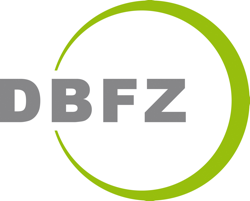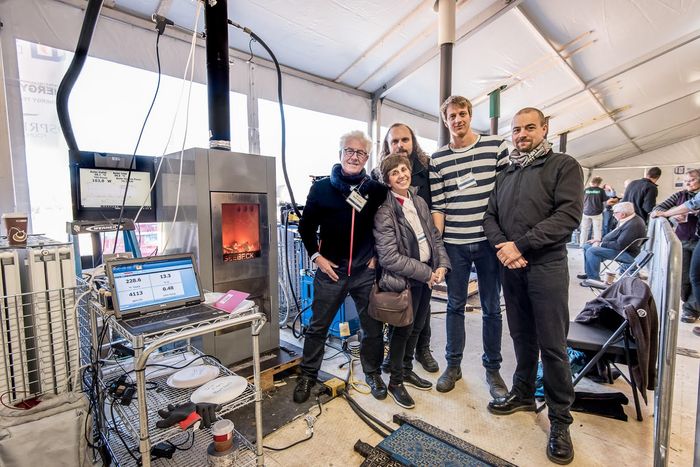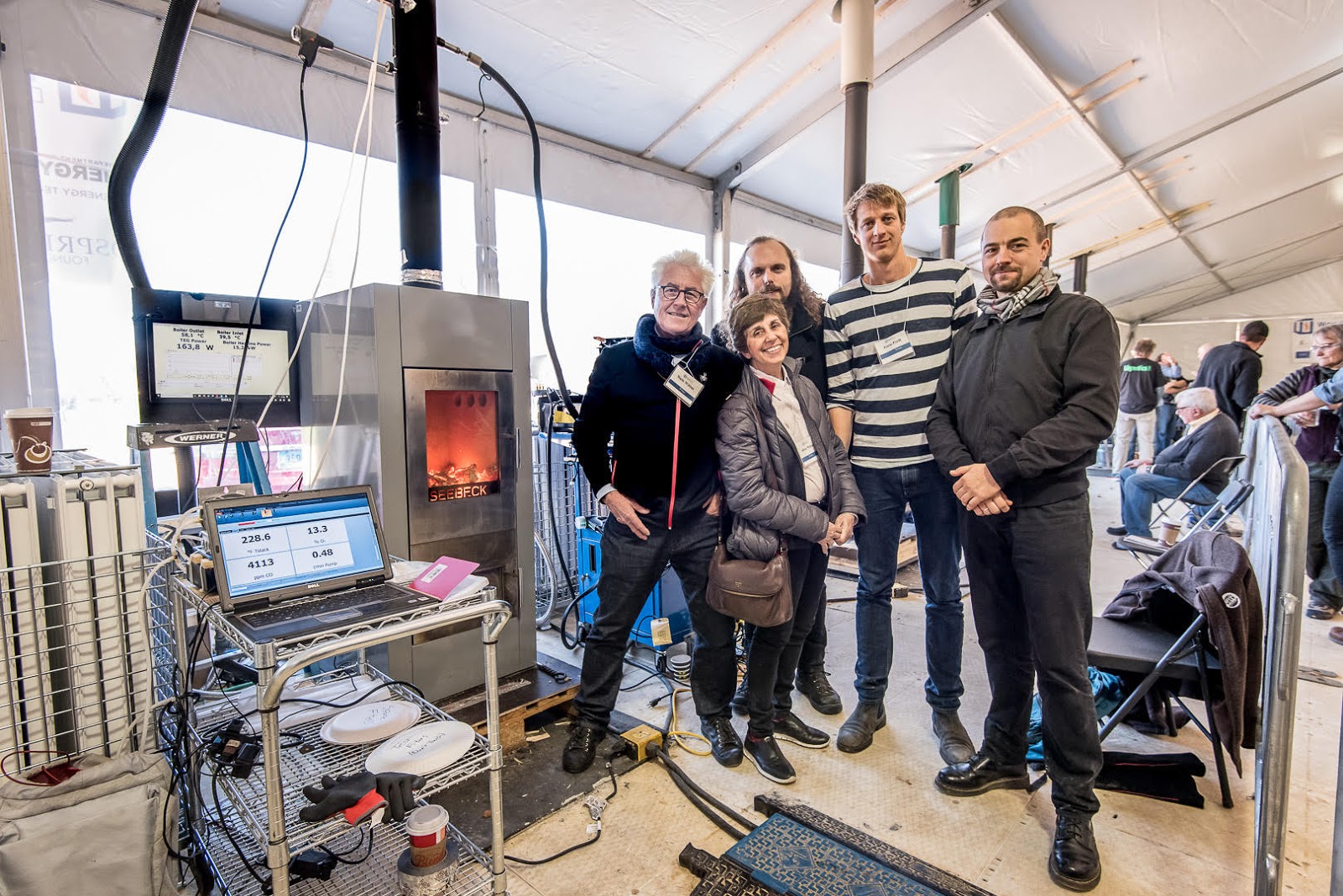Double victory in the US wood combustion competition: Team Wittus won two titles for the zero-emission stove with the "E-Stove" model.
Double success for Team Wittus with DBFZ participation: in the biennial US wood combustion competition for the cleanest wood stoves, the team involving Dr. Ingo Hartmann of DBFZ won again the "Wood Stove Design Challenge" in Washington, D.C. after winning in 2016. In addition to the first prize for automated wood firing systems, the E-Stove also scored in the new thermoelectric category this year.
"Outstanding values for particulate matter, CO, efficiency and safety" was the winning judgement of the fifteen-member jury after a total of five days of testing with ten competing wood stove models. By winning the renowned competition, Team Wittus, consisting of thepartners Thermoelect GmbH, Wittus - Fire by Design, ETE EmTechEngineering GmbH and DBFZ, was not only able to continue the success of 2016 with the "E Stove" model developed in Germany and equipped with catalytic converters from Blue Fire GmbH (manufacturer: Thermoelect GmbH, furnace type: Seebeck 250 W). The Team Wittus also to win first prize in the new category of furnaces equipped with thermoelectric generators. In this category, the jury was particularly impressed by the highest electrical output of up to 250 watts and an integrated design that can maintain a stable electrical output.
"We are particularly pleased and proud that we not only managed to repeat the success of 2016 with an innovative wood-burning system, but also to win first price in the thermoelectric stove category. The prize enables us to continue our work and develop the technical details together with our partners so that further improvements in the use of low-emission and intelligent biomass heating technologies are possible. Many thanks in particular to the company Thermoelect GmbH from Wismar, which made the double victory with the E-Stoves possible by providing the innovative combustion technology of the Seebeck 250 model," says Dr. Ingo Hartmann of DBFZ.
The wood combustion system presented at the competition is a three-stage combustion system in which wood logs are thermally decomposed in the first stage and converted into burnable gases. The combustible gases are then oxidized in a downdraft flame with a downstream catalyst for the fine purification of the exhaust gases. The heat extraction in awater circuit unit with up to 20 kW output and the power generation with thermoelectric generators up to 250 W takes place in the third stage. The integrated catalysts enable the total oxidation of carbon monoxide, volatile organic compounds and soot. The emission values are therefore extremely low and were below the detection limit of the measurement methods used in most parts of the combustion phase. In addition to numerous potential consumers in Germany, there are now also inquiries from partners in the USA who want to use the E-Stove. In order to meet the demand, field trials and an approval according to U.S.-EPA will be strived in the near future. The current version of the E-Stove can be purchased under the type designation "Seebeck 250" from Thermoelect GmbH in Wismar.
Background:
As part of the "Wood Stove Design Challenge" organized by the Alliance for Green Heat, the world's most innovative low emission and combustion concepts were compared in 2013, 2014, 2016 and 2018 and evaluated by an independent jury. The DBFZ has been a member of Team Wittus since 2014 and took part in the competition with various low-emission stoves. In 2014 the team won second place, in 2016 first place and in 2018 again first place in two categories ("Automated" and "Thermoelectric"). Further information can be found at: http://forgreenheat.org/2018-stovedesign/stovedesign.html.
Smart Bioenergy – innovations for a sustainable future
The DBFZ works as a central and independent thinker in the field of energy and material use of biomass on the question of how the limited available biomass resources can contribute to the existing and future energy system with sustainability and high efficiency. As part of the research the DBFZ identifies, develops, accompanies, evaluates and demonstrates the most promising fields of application for bioenergy and the especially positively outstanding examples together with partners from research, industry and public. With the scientific work of the DBFZ, the knowledge of the possibilities and limitations of energy and integrated material use of renewable raw materials in a biobased economy as a whole should be expanded and the outstanding position of the industrial location Germany in this sector permanently secured – www.dbfz.de/en.


